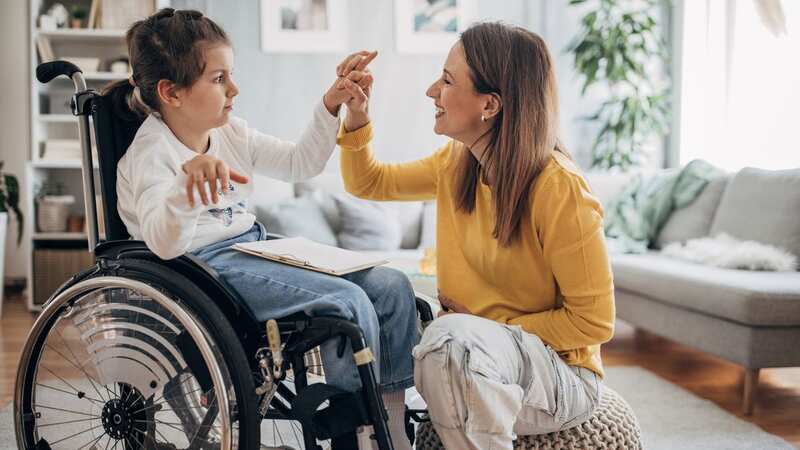Parents of children with health issues can get payments worth £172 a week

Parents with disabled children can claim money from the Department for Work and Pensions (DWP) - but many are not aware that they can.
Most people are aware of the extra costs those with disabilities face and the same stands for children too.
In England and Wales, parents and guardians who have a child with a disability or health condition can claim Disability Living Allowance (DLA).
According to Citizens Advice, DLA isn’t just for children who are physically disabled, it can be given for a wide range of medical conditions.
This can include behavioural and mental health conditions as well as learning disabilities and developmental delays.
 Six teachers open up on 'difficult' strike decision - and why they are doing it
Six teachers open up on 'difficult' strike decision - and why they are doing it
Citizens Advice noted that you might be able to claim even if you wouldn’t describe your child as "disabled".
Here, we have explained everything you need to know about DLA from who is eligible for it, how much you get, and how you can put in a claim.
Who can claim DLA?
According to Government guidance, parents can claim the support if their child’s disability or health condition means that they need “much more” looking after than a child of the same age who does not have a disability.
To be eligible, your child must have been disabled or had the condition for at least three months, and you must expect it to last for six months or more.
As well as this, your child must be under the age of 16 years and you can claim for children under three years too.
However, Citizens Advice says this can be "quite difficult" to get as all children of this age need a lot of care.
Although if your baby does require more care, such as you need to get up multiple times a night to provide treatment, then you may be eligible as this is more care than a child of the same age without a disability.
How much is DLA?
The payment is made up of two components and under 16s may qualify for one or both depending on the level of support they need.
These two components are split into the care component, which is divided into three levels, and the mobility component, which has upper and lower levels.
Each level of both components is paid a different weekly rate and you can be paid for one or both.
 Warning as millions on Universal Credit could miss out on hundreds of pounds
Warning as millions on Universal Credit could miss out on hundreds of pounds
For the care component, the rate the child gets depends on the level of looking after they need - for example:
- Lowest rate - help for some of the day - weekly rate £26.90
- Middle rate - frequent help or constant supervision during the day, supervision at night or someone to help while they’re on dialysis - weekly rate £68.10
- Highest rate - help or supervision throughout both day and night - weekly rate £101.75
For the Mobility component, the rate the child gets depends on the level of help they need getting about, for example:
- Lowest rate - they can walk but need help and or supervision when outdoors - weekly rate £26.90
- Highest rate - they cannot walk, can only walk a short distance without severe discomfort, could become very ill if they try to walk or they’re blind or severely sight impaired - weekly rate £71
Overall, if your child is eligible for the highest rate of both components, you could claim £172.75 a week or £691 a month.
Children who have a terminal illness and a medical professional has said they might have six months or less to live are eligible to receive the highest rate of the care component.
The amount you could receive from the mobility component however will depend on your child's ability to get around.
If you have a successful claim, DLA is usually paid every four weeks on a Tuesday.
You should also be aware that DLA isn’t means tested, so it doesn’t matter how much you earn or what you have in savings - you will receive the full amount you are entitled to if you claim.
How to make a claim for DLA
Government Guidance says that to claim DLA for a child you need to be their parent or look after them as if you’re their parent.
This includes step-parents, guardians, grandparents, foster-parents or older brothers or sisters.
To make your claim, you can download and fill out the DLA claim form which you can get from Gov.uk here. You can then send this off to the DWP.
You can also call the Disability Living Allowance helpline on 0800 121 4600 - the office is open Monday to Friday 9am to 5pm.
This is because your payments will be backdated to the date you phoned, and if you download an application form, you'll only be paid from the date that the DWP receives it.
Adults in England and Wales are unable to make a claim for DLA as it has been replaced with Personal Independence Payment (PIP).
If you live in Scotland you will get the Adult Disability Payment if you are under the state pension age.
Read more similar news:
Comments:
comments powered by Disqus

































